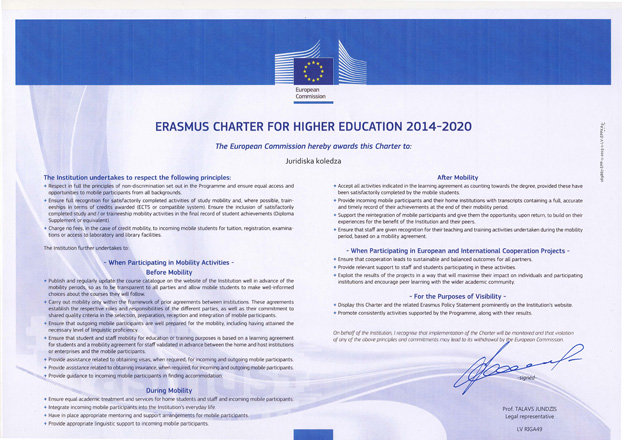
The new European Union (EU) support program for the education, training, youth and sports “Erasmus+” is functioning since 2014, replacing several previous European Union support programs (Comenius, Leonardo da Vinci, Grundtvig, Erasmus, Jean Monnet, Study trips sub-programs, Erasmus Mundus, Tempus, etc.). The program will operate from 2014 to 2020
Main support directions of ERASMUS+:
- Learning Mobility for Individuals;
- Cooperation for Innovation and Exchange of Good Practices;
- Support for Policy Reform.
ERASMUS+ mobilities are implemented in one of the Erasmus+ program countries.
34 countries participate in the program in total:
- 28 European Union Member States(Austria, Belgium, Bulgaria, Czech Republic, Denmark, France, Greece, Croatia, Estonia, Italy, Ireland, Cyprus, Latvia, United Kingdom, Lithuania, Luxembourg, Malta, Netherlands, Poland, Portugal, Romania, Slovakia, Slovenia, Finland, Spain, Hungary, Germany, Sweden);
- Member States of the European Economic Area (Iceland, Norway, Liechtenstein);
- European Union candidate countries (Turkey, the former Yugoslav Republic of Macedonia);
International student and personnel mobility has started since the 2015/2016 academic year as well
(at the moment - except for student internships), in which countries from four groups take part:
- IPA (Western Balkan countries), ENI (Eastern Partners;
- Southern Mediterranean, Russian Federation);
- DCI (Asia, Central Asia, Latin America, South Africa);
- PI (Industrialized America, Industrialized Asia).
ERASMUS HARTA No 269867-EPP-1-2015-1-LV-EPPKA3-ECHE, ERASMUS+ ID: LV RIGA49
Information about the program at the VIAA website
ERASMUS strategy